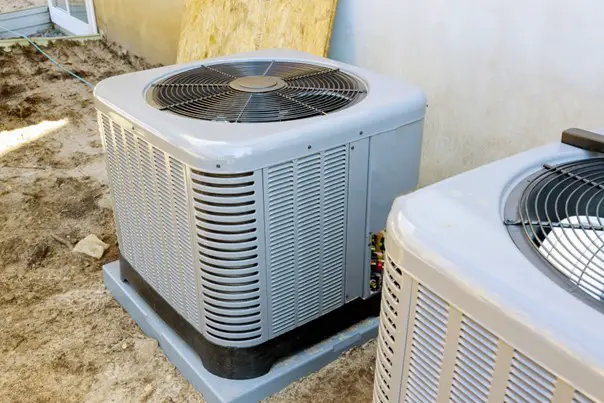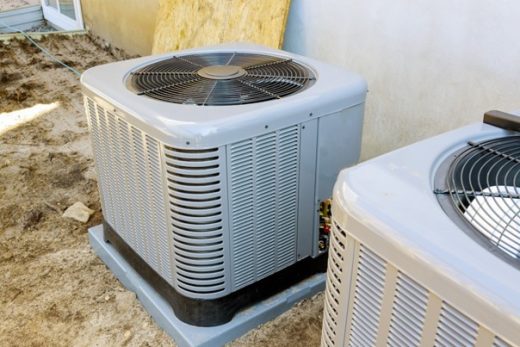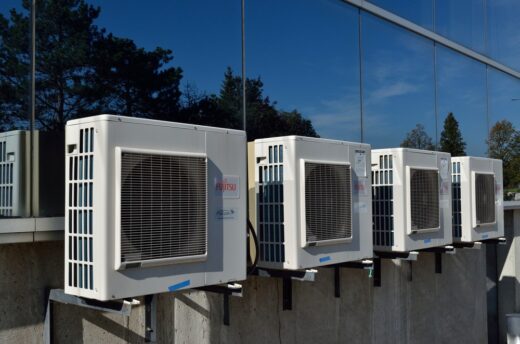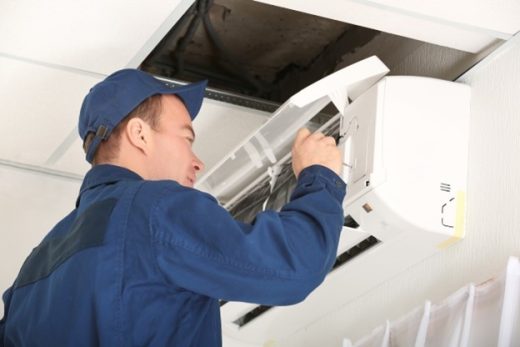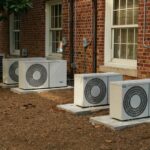Your Quick Guide To HVAC Units, Heating ventilation and air conditioning advice, Home heat
Your Quick Guide To HVAC Units
21 Dec 2022
HVAC systems are a common site in commercial buildings and otherwise. These large rooftop units serve a vital function in keeping the interior of a building comfortable for everyone inside. Whether it’s a business, apartment complex, or other commercial building, HVAC units are critical to any architectural design. In the past, many HVAC units have been powered by gas, but that is rapidly changing. Whenever you have issues with your HVAC system or anything about plumbing, you might want to consider services provided by Metro Plumbing, Heating & Air.
Many communities are switching from natural gas to electric HVAC systems instead, making for a more energy efficient and less costly system. Regardless of the type of systems you use, they require regular maintenance, occasional repairs, and plenty of attention to keep them humming along. But what are HVAC systems, how do they work, and how do you keep them in tip shop shape 100% of the time? And this article, will we seek to answer those questions and help you better understand the HVAC systems you use every day.
What Is An HVAC?
You’ve undoubtedly seen them whenever you’ve driven by an apartment building or large business (such as a grocery store or movie theater). Those large, rectangular units protruding from the roof of the building are commercially known as HVAC or rooftop units. HVAC—short for heating, ventilation, and air conditioning—units are necessary for homes and businesses. The best part about an HVAC system is that they are highly efficient and can work all year round. They’re also useful for dehumidification, filtration, and staying safe indoors. That’s on top of their heating and cooling functions. HVAC systems are big business as well. By 2024, HVAC sales will exceed 151 million units. AC and HVAC units are consistently in high demand across the globe and continue to surge in popularity with each passing year.
HVAC units – How They Work
HVAC units are a phenomenon of modern engineering. They use a combination of heating, ventilation, and air conditioning to maintain the temperature in an indoor space. As the unit takes in outside air, it filters it for contaminants. Based on the temperature of the thermostat, it will heat or cool the area appropriately. The HVAC system also circulates air and purges the air of any bacteria through its filtering system. HVAC systems are designed to maintain a comfortable humidity level as well as create a clean, heated or cooled environment.
In air conditioning, fans move air over refrigerant-filled coils to create the cool air. Heaters work by using gas or electricity. Electric heaters send a surge of electricity through heating coils to generate heat. Gas furnaces and heaters burn gas that gets passed through a heat exchanger, which then goes over the ductwork of the building. An HVAC system—depending on whether it’s gas or electrical—will work in much the same manner but are typically more efficient and easier to maintain.
Maintenance
Speaking of maintenance, HVAC systems require plenty of it. To maintain their function over their life cycle, HVAC units require regular maintenance to operate efficiently. Essentially, in an HVAC system, you need air to get air. Clogged and dirty filters lead to airflow problems. Indeed, not cleaning filters is one of the worst offenders for HVAC problems. Other than cleaning filters, regular HVAC maintenance includes:
- Filter cleaning
- Vacuuming
- Blow the pilot tube out
- Clean the burners
- Oil the motor (if it’s an older style)
- Check leveling
- Check refrigerant
- Ensure temperature settings are correct
- Clear debris (inside and outside)
Hiring a maintenance service or vendor to service your HVAC units semi-annually or annually is critical to keeping them working well throughout the year (and hopefully, much longer than that).
Optimization
Check out Year Round Heating & Air Conditioning for your HVAC needs. Part of keeping your systems in good shape is optimizing their use. Of course, sometimes that’s easier said than done. So what can you do to optimize your HVAC systems appropriately? You can start by asking professionals in the field what they think and see if they can offer you some suggestions. Along with that, it’s a good idea to keep temperatures around 70°. Keep in mind that homes or other buildings don’t cool down or heat up super fast. They require some time to get up or down to the proper temperature.
That’s one of the reasons HVAC systems have such a complex series of controls and sensors, along with access controls that let you adjust the temperature. Another step toward optimizing your HVAC systems is to check their efficiency rating. Most units have an 80% efficiency rating and yours should meet the standard. It’s better if you have a 90% efficiency unit, however. It’s also vital to clean out any condensation regularly as it can cause damage to the hvac. The last thing you want is a burnt out heat exchanger due to condensation that you could have easily cleared out. By staying on top of Maintenance and ensuring efficiency raters are meeting standards, you can optimize the function of your HVAC systems with ease.
HVAC units Repairs
As any home or business owner can attest, repairs just need to happen sometimes. The same thing applies to HVAC’s. Keeping HVAC systems in good shape is but one aspect of a larger process involving the life cycle of an HVAC system. Occasionally, things break down, coils burn out, or damage occurs throughout the course of daily usage. Unfortunately, no amount of maintenance or regular care can prevent the inevitability of a repair. Repairs just need to be done from time to time on HVAC systems.
Fortunately, there are some ways to get ahead of the sometimes exorbitant costs associated with repairs and the frustration of finding the right vendors to perform them. Vendors like Howard Air (who can be found at https://howardair.com/) can take care of any of your HVAC maintenance and repairs. Their team of professionals can also answer any questions you might have while providing stellar quality service for all your HVAC needs. By ensuring you have access to knowledgeable professionals who can help you with the repairs you need, you can extend the life of your units and ultimately get more use out of them before they experience catastrophic breakdowns or reach end of life.
Comments on this Quick guide to HVAC units article are welcome.
HVAC – Air Conditioners
Air Conditioners Posts
Why Rely On Professionals For Air Conditioning, Heating, HVAC
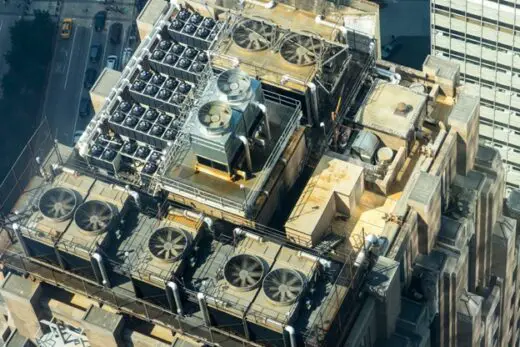
HVAC Systems in Modern Architecture
5 great advice from top rated HVAC contractor
Buildings
Residential Architecture Articles
Comments / photos for the Quick guide to HVAC units – Air Conditioning, Heating – Buildings Temperature Control page welcome

